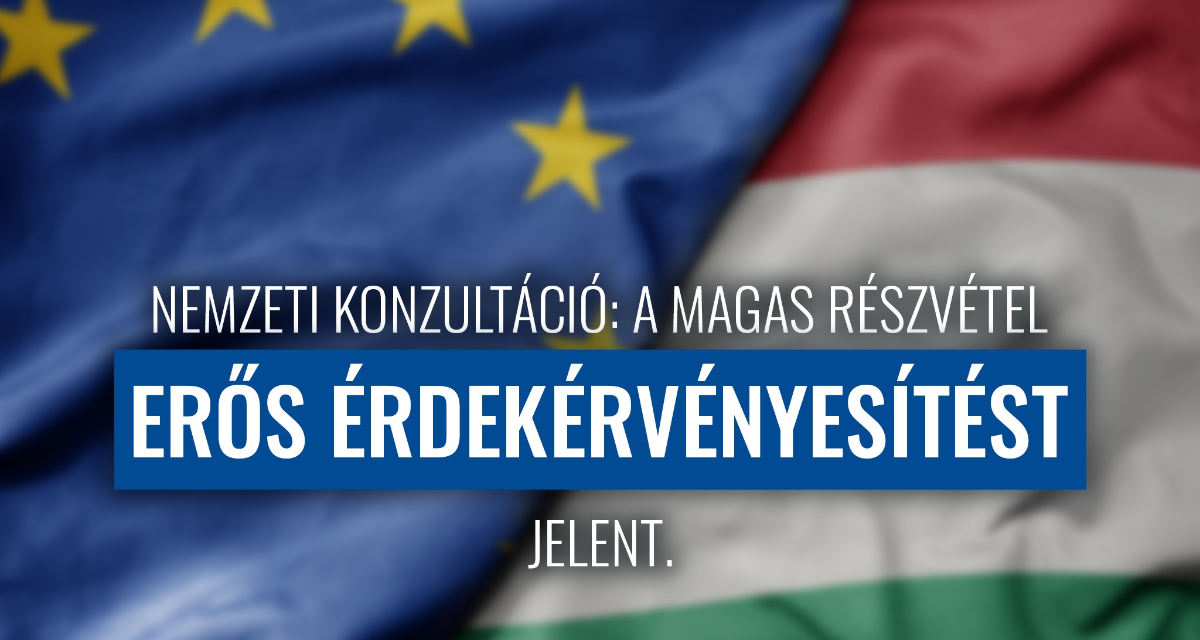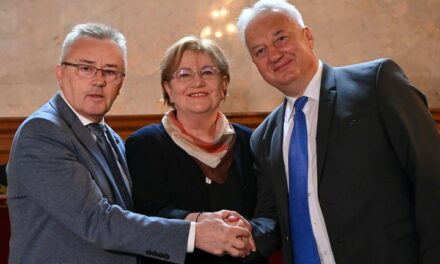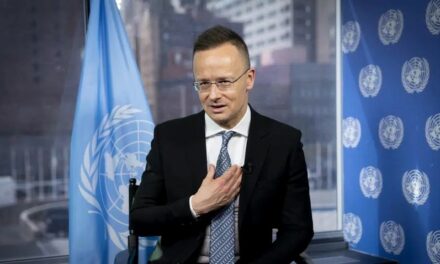High participation in the national consultation means strong advocacy , the Center for Fundamental Rights wrote in its latest analysis, according to which the national consultation is a suitable tool for voters to express their will on the most important political issues.
"This is supported by the data of the twelve social consultations so far, which are usually only questioned by left-wing and Brussels political actors who are not able to show legitimacy similar to that of the Hungarian government, nor do they necessarily have the ambition to actually get to know people's ideas, especially not to take them into account" - they formulated.
The Center for Fundamental Rights reminds us that the left usually boycotts consultations aimed at asking the opinion of the Hungarian people, despite the fact that in some consultations more people expressed their opinion than the number of people who voted for the coalition led by Gyurcsány in the 2019 European Parliament elections.
This also shows that the parties stuffed with rolling dollars only like to mime democracy, not practice it.
The national government will soon begin consultations with the voters again in order to show the strength of unity in relation to Brussels' pressures that are contrary to the interests of Hungary.
In addition to war and migration, which determine the security and future of all of us, among the topics, there will also be the question of utility reduction, the interest rate cap and the protection of extra-profit taxes, because the EU bureaucrats want to force the government to abolish the latter.
The national consultations so far have been able to significantly influence the political processes.
The Center for Fundamental Rights recalled that the first was held in 2010, during which the cabinet was specifically interested in the opinions of pensioners regarding matters and decisions affecting them. Even then, 200,000 people answered the questions. The Hungarian government later sought the opinion of the voters, among other things, in connection with the basic law, György Soros' actions towards Hungary, family protection and, most recently, Brussels' sanctions policy.
According to the weight of the topics, a large number of respondents returned the consultation forms: in 2017, the social dialogue about the Soros plan was the most successful in this respect, with almost 2.4 million people participating.
The questionnaire from 6 years ago was returned by more people than the number of people who supported left-wing parties in the 2019 EP elections (1.4 million votes) or the 2022 parliamentary elections (1.9 million votes), concluded the Center for Fundamental Rights .
"Nevertheless, the opposition regularly undermines the institution of national consultation. However, by making repeated attempts to imitate it, they admitted many times that it was a successful political innovation, and at the same time they belied their own criticism of government initiatives," reads the analysis.
"It's a different matter that their attempts have been rather weak", which, according to the Center for Fundamental Rights, can be related to their inability to stand up for cases for which a strong social demand can be demonstrated.
The first aftermarket "Bovli consultation" was launched by Jobbik in 2017: with their campaign called a "real national consultation", according to their own admission, they were only able to mobilize 200,000 voters. In August 2018, the MSZP launched a "comprehensive" consultation, which, however, was completed by only 20,000 people. In 2020, Momentum tried something similar, with very moderate success. The Fekete-Győres did not bother with the intellectual work associated with naming the initiative, they simply borrowed the "real national consultation" brand to mobilize 15,000 voters. Gergely Karácsony's "Budapest residents' meeting" received 136,000 reactions, and it is no coincidence that they themselves were not very proud of this.
Brussels has also tried to reach out to people with the Future of Europe conference series. Between April 2021 and May 2022 – in a fairly broad time frame – consultations were held on this throughout the continent, during which less than 705,000 people expressed their thoughts.
"The national consultation is a means of seeking and demonstrating unity with the voting citizens, the practice of identifying and representing national points of agreement. It only works well if its initiators use it to bring the will of the voters to the negotiating table. If this logic is reversed, the weapon will backfire," reads the analysis.
Cover image: According to the analysis of the Fundamental Rights Center, high participation in a national consultation means strong advocacy
Source: Facebook/Fundamental Rights Center












